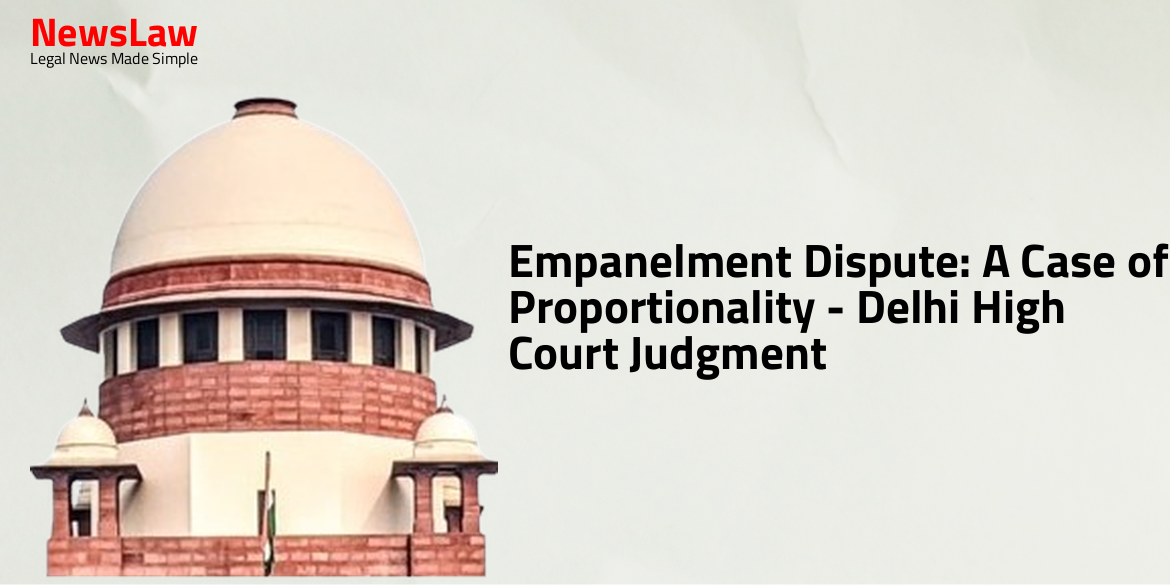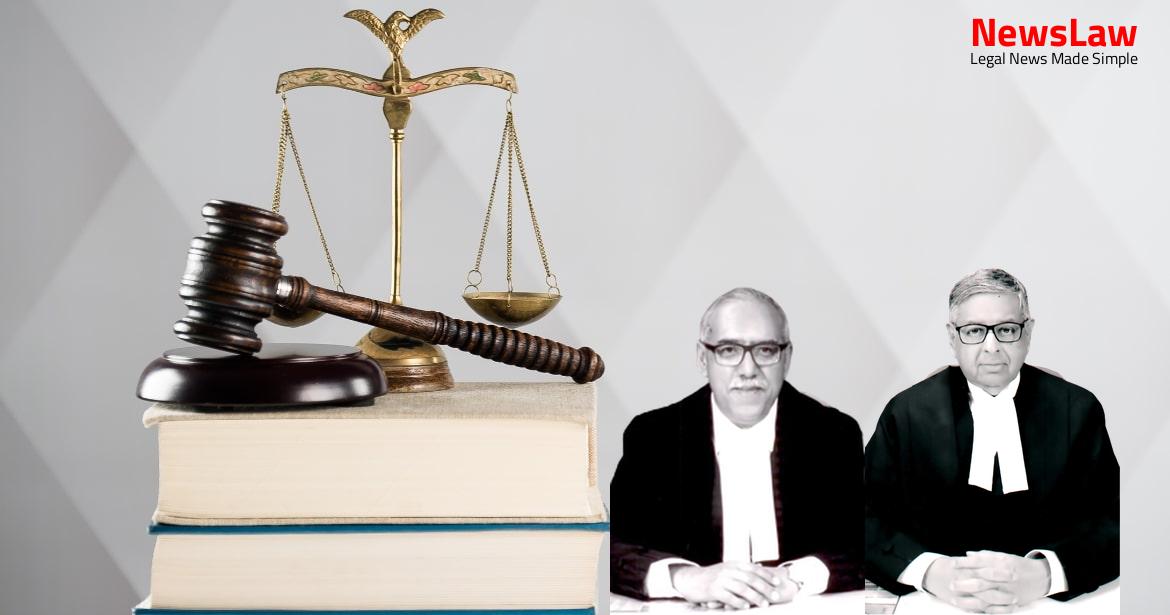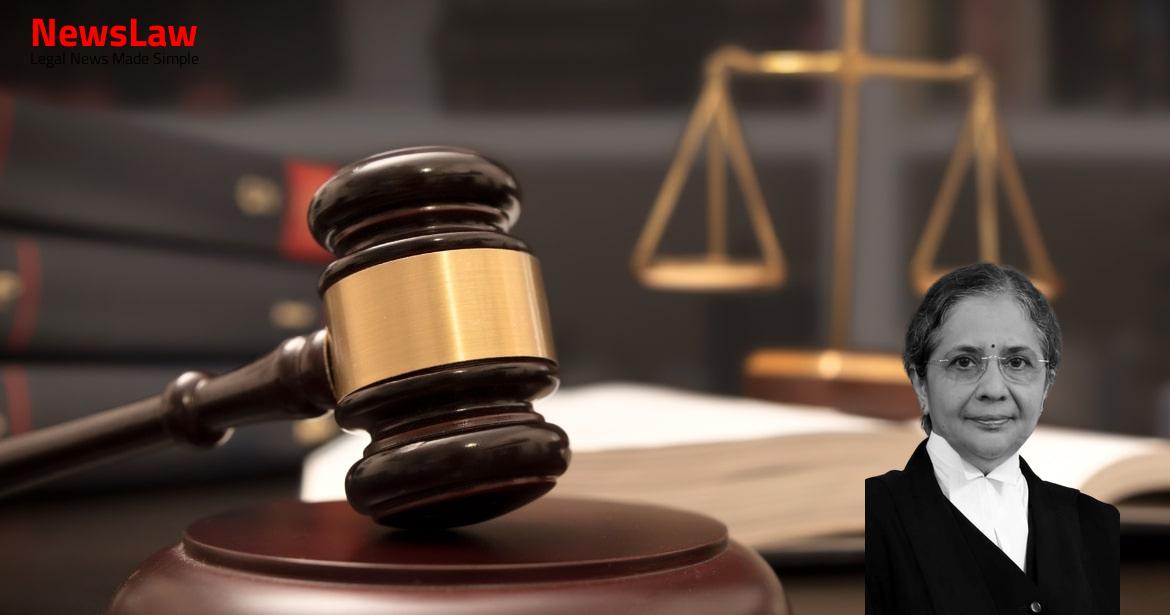In a recent judgment by the Delhi High Court, a case revolving around an empanelment dispute between a service provider and railway authorities was brought to light. The court’s deliberation focused on the principle of proportionality in administrative law, highlighting the importance of fair and just decision-making in such matters. Let’s delve into the details of the judgment and unravel the implications of this significant legal case.
Facts
- Respondent No.2 floated a notice inviting tenders on 17.11.2022 for providing back-end services in South India divine ‘Swadesh Darshan’ Train from 20.11.2022 to 28.11.2022.
- The train was to contain 18 coaches with a total of 940 passengers (470 seats in budget class, 470 seats in standard class, and 62 seats in 3 AC).
- The Petitioner participated in the tender, emerged as the highest bidder, and was awarded the tender for providing back-end services in the specified train.
Arguments
- The Petitioner was not provided with pantry rakes fitted with an induction facility for flameless cooking.
- Despite the lack of induction facility, the Petitioner was required to serve unlimited hot cooked meals to passengers using LPG cooking, which was not permitted.
- The IRCTC clarified that flame-based cooking was prohibited in the pantry car of the train.
- The LPG fitness certificate was countersigned by the Railway Supervisor, indicating awareness of the LPG usage.
- The Petitioner asserts they were provided a train with LPG cooking provisions instead of electric induction as per tender conditions.
- A circular explicitly prohibited inflammable materials like stoves and gas cylinders in the train, aiming to prevent accidents.
- The Petitioner’s use of LPG cylinders for cooking was deemed a violation of railway regulations against flame-based cooking in pantry cars.
- The train experienced a 15-hour delay, hindering the Petitioner’s ability to make alternative food arrangements for passengers.
- The Petitioner requested an LHV rake to improve service quality, suggesting willingness to comply with regulations.
- The Petitioner’s reply to the Show Cause Notice was considered unsatisfactory by the Respondents.
- The Respondents rejected the Petitioner’s explanation that the provided pantry car lacked the necessary facilities for serving unlimited hot food.
- The punishment given to the Petitioner was viewed as commensurate with the violation committed, showing no bias in enforcement.
- The Petitioner is not a novice and is a seasoned contractor.
- The Petitioner should have anticipated the delay in Railways and made alternative arrangements for providing hot cooked food to passengers.
- Circulars issued by the Railways clearly prohibit flame-based cooking in pantry cars.
- The Petitioner has been providing services to the Railways since 2019.
Analysis
- The Petitioner’s use of LPG cylinders was a cost-cutting measure against the tour programme rules prohibiting inflammable materials on the train.
- The Doctrine of Proportionality was explained by the Apex Court in Coimbatore District Central Coop.
- The journey took place from 20.11.2022 to 28.11.2022.
- Consideration was given to the proportionality of the punishment imposed on the Petitioner.
- Past incidents show the Petitioner had made alternative arrangements when faced with similar situations.
- The excuse of last-minute train handover without flameless cooking provisions was deemed unacceptable.
- Serious breaches cannot be ignored, and the gravity of the service provider’s actions leading to the incident is relevant in determining the penalty.
- The Petitioner provided food without LPG cylinders from 24.11.2022 to 28.11.2022 after they were removed from the train.
- The claim of being singled out by the Petitioner was dismissed by the Court.
- Five gas cylinders were seized by the RPF during inspection in Madurai on 24.11.2022.
- Running late is not a valid excuse for an experienced contractor like the Petitioner, as delays are common and proper arrangements are expected.
- The Report mentioned that the Petitioner’s empanelment was put on hold due to single journey license, while licenses of other service providers were terminated.
- The doctrine of proportionality is a principle in administrative law.
- The government and its departments are expected to administer affairs with full personal consideration and without abuse of discretion.
- Using a ‘sledgehammer to crack a nut’ is not permissible; the appropriate level of response must be applied.
- Writ Courts under Article 226 do not act as appellate authorities and only interfere with punishments if they shock the conscience of the court.
- There are two tests involved in the doctrine of proportionality: the balancing test and the necessity test.
- The principle of proportionality is well established in European law and is applied in English courts where European law is enforceable.
- For the High Court to interfere with a punishment, it must be so disproportionate to the misconduct that intervention is required.
- The doctrine of proportionality is a mode of exercising power to control abuse of discretionary powers.
- In cases where there is no reasonable relationship between the objective and means used, or when punishments are disproportionate, the court can quash exercise of discretionary powers.
- The case of Bank v. Employees Assn., (2007) 4 SCC 669, further elaborates on the doctrine of proportionality.
- High Courts do not intervene with the quantum of punishment when no disproportionality is present.
- The decision to keep the petitioner’s empanelment in abeyance for six months by the respondents is upheld.
- Article 226 of the Constitution of India does not permit tinkering with the punishment solely on the basis of a possible alternative view.
Decision
- Writ Petition dismissed
- Dismissal of pending applications
- Specifically mentioned parties involved
Case Title: ZENITH LEISURE HOLIDAYS LTD Vs. UNION OF INDIA & ANR. (2024:DHC:3676)
Case Number: W.P.(C)-638/2023



